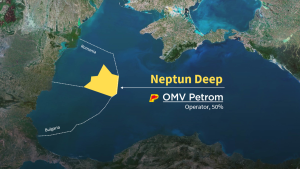An article written on trade, commercial law and litigation, by leading expert Philip Lee
Whilst my title is Managing Partner I am not convinced I fulfil that role. My colleagues, who are heads of their various departments, do an amazing job at managing their own departments. What I try to focus on is providing a vision for the future and ensuring that we remain loyal to our values as they are the very essence of our existence.
I am very active as a practising lawyer, particularly in the areas of procurement and competition law. I also have a rather unique experience in WTO law. I was the first private lawyer to represent countries, in this case 77 countries from the ACP group, before the panel and appellant body of the WTO in the very long running and famous banana dispute. This was the most complex WTO dispute ever before the panel or appellant body.
In about 1995 I was appointed through a tender process to represent the 77 countries of the ACP Group in the major WTO dispute. I brought together a team with an American lawyer (former Deputy United States Trade Representative) and a French speaking lawyer who had previously been a high-ranking official with considerable experience of trade matters. Thus, I was ensured that my team covered all aspects and provided the experience needed to fight this comprehensive battle. The most challenging aspect of it in some respects was coordinating the responses from the capitals of the countries I represented. It is no easy task representing 77 countries and coordinating, through both the capitals and their representatives in Geneva, a coordinated position in a complex matter such as the banana trade dispute.
I also was a visiting professor of international trade law in UCD for about five years.
WTO and International Trade Law
WTO and international trade law were considered quite esoteric for most of the past 20 years with only a handful of lawyers having any practical experience in the substantive and procedural elements of this area of law. This is changing now and is likely to change even further as a result of the decision by the UK to implement a Brexit strategy. I have delivered seminars on what I consider will be the implications and the outcome of the UK position on Brexit. So far my predictions have proved accurate. I correctly predicted that the UK would adopt a position of seek to enter into a customs union, like Turkey, with the EU. However, unlike the UK Government, I predicted that participation in the customs union would last between five and ten years. I note the UK suggests this may be a two-year interim arrangement. I believe I will be proved right. My confidence in my prediction stems partly from the fact that there seems to be a refusal to accept the reality that the negotiation of a comprehensive free trade agreement (FTA) with the EU (or for that matter with any other contracting party of the WTO) is a highly complex matter, even if you have an experienced negotiating team at your disposal. It usually takes upwards of ten years. The UK is short of experts experienced in trade negotiations and international trade law. They will not be able to set up a comprehensive FTA with the EU or anybody else within a two-year period. The UK strategy seems designed to produce confusion. When one examines the Prime Minister’s Lancaster House speech and the 11 objectives outlined in relation to their relationship with the EU, it is plain as a pikestaff that most of the objectives are completely contradictory and cannot be delivered. It is tantamount to the Prime Minister announcing that they have decided that in the UK, all cars should drive in the left hand side of the road but they are also going to allow cars to drive on the right hand side of the road! I await the car crash!
The UK has also ignored the fact that, whilst they are undoubtedly a member of the WTO, the UKs schedule of commitments (which represent what they will offer every other country concerning import duties and arrangements) is in a vacuum. It is possible that it will take years to establish the UK as an independent entity with its own schedules of commitments within the WTO. Simply adopting the EU schedule as its own is more complex than is being made out.
As things currently stand the only certainty is that UK companies involved in export or import and UK financial industries face uncertainty over the next, possibly lengthy, period. Nature does not like a vacuum and similarly business does not like uncertainty. Unfortunately, the uncertainty is a fact. We already see today a flight from London of financial institutions. The uncertainty means that a UK company exporting is unable to tell its customer what the import tariff or quota arrangements will be in the future. This is because the UK has announced that it will not be in the EU and it does not have a trade agreement with any other country. This leaves every UK importer and exporter vulnerable to any competitor located within the EU. That EU competitor will knock on the door of the customer of a UK exporter saying, ‘Hello, I can provide you my product and I can provide you absolute certainty in terms of the import duties into your country that this product will face, and I can probably also provide you with pretty good comfort in relation to the currency and costs of my product’. They can also say that, insofar, ‘as my product is made up of imports from other EU member states or even countries outside of the UK, I know the cost of importing the components that make up my product and I can therefore assure you that you will have the same quality and the same predictability of price as you have always had.’ The UK competitor of this EU Company is left somewhat abandoned. Whilst the flight of the banks has taken place, this second ‘flight’ of international customers and UK manufacturers will soon begin to be seen.
Which sectors boast the most challenges as a litigator?
Firstly, I would say the most challenging area of law to litigate is competition law. This is because in Ireland the size of the market is relatively small but the costs of a full competition case, with the requirement of expert evidence and a great deal of factual information poses significant challenges. The challenges also arise from the need to get comprehensive discovery of “covert” actions. It is not clear that judges recognise the particular challenges of competition law and the need for a more intelligent approach to discovery to find documents - those documents usually being evidence potentially for criminal conduct. Having said that, we have had some phenomenal successes in competition law including establishing fascinating precedents on the entitlement to discovery, and also in receiving significant levels of compensation.
The Energy Sector
The energy sector is interesting because when there is a regulatory issue there are many different avenues which must be considered in delivering a solution to the client. There is obviously the possibility of dialogue with various Directorates or a formal complaint to the European Commission. There is also the possibility of dialogue with the Department for Energy or with the Commission for Energy Regulation (CER). These bodies may be under resourced and have difficulty keeping up with the complexities involved in ensuring the lights stay on, the cost of energy is as low as possible, and addressing climate change. In addition to dialogue with those bodies there are also the possibilities of litigation before the High Court or with the specific sectoral regulatory bodies. The variety of avenues makes the task particularly enjoyable and stimulating.
The other fascinating thing about the energy sector is that it is closely tied to climate change. From the very beginning, we have been heavily involved in renewable energy. We were advisers to the first Irish major renewable company Airtricity, and are currently advisers to the Sustainable Energy Authority of Ireland (SEAI) and numerous renewable energy developers. I was Founding Chairman of the Irish Green Building Council, whose objective is to facilitate the creation of a greener built environment.
As a firm we are passionate about the opportunities created by decarbonisation. We intend to be at the forefront of this challenge.
The Health Sector
Aside from energy I would also say that our experience in the health sector has been extremely rewarding. We advise many players in the health sector including the Health Services Executive (HSE). The HSE is the equivalent of the NHS in the UK and is the provider of public health services throughout Ireland. We work on many of their most exciting projects from procurement challenges to drugs pricing to major construction and PPP projects. One of the advantages of working for the HSE is that it is highly motivating. It is an organisation that will always be subject to criticisms in the press, but from our experience it is full of professional and dedicated clinicians and managers.
Whilst I believe we have the best lawyers in the country bar none, what we are particularly skilled at also doing is helping clients foresee their future. This is good for our clients and also very good for us as a law firm. I have always tried to foresee where the law was going and hoped to be the only lawyer in a particular area. So far, I think I have succeeded in achieving this.
Philip Lee is the Managing Partner of a 110 person law firm with headquarters in Dublin and offices in San Francisco and Brussels. The aim of the San Francisco office is to bring US companies to Ireland. The Brussels office, on the other hand, is aimed at WTO and EU Competition law issues and servicing clients with EU related problems. Philip is a leading expert in the area of procurement, competition, trade and construction law.
Philip advises clients in relation to the largest public utilities projects in the country. His extensive PPP experience includes roads, waste, waste water and electricity PPP projects where he acts for both public and private bodies.




















